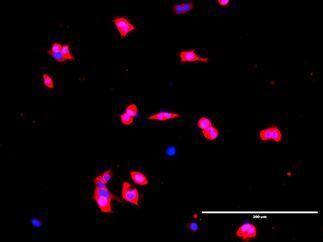DNA-altering protein to enable personalised medicine

Singaporean scientists have developed a protein that can alter DNA in living cells with higher precision than current methods. Their work could enable the development of personalised medicine to treat diseases such as Huntington’s disease, muscular dystrophies and blood disorders like sickle cell anaemia.
The protein, named iCas, was developed through a collaboration between A*STAR’s Genome Institute of Singapore (GIS) and Nanyang Technological University, Singapore. Led by Dr Tan Meng How, the team’s study has been published in the journal Nature Chemical Biology.
“DNA is like an instruction manual that tells living cells how to behave, so if we can rewrite the instructions in this manual, we will be able to gain control over what the cells are supposed to do,” said Dr Tan. “Our engineered iCas protein is like a light switch that can be readily turned on and off as desired. It also outperforms other existing methods in terms of response time and reliability.”
The chemical that switches the iCas protein on or off is tamoxifen, a drug commonly used to treat and prevent breast cancer. In its absence, iCas is switched off with no changes made to the DNA. When switched on with tamoxifen, iCas will then edit the target DNA site.
This external chemical input solves some of the problems with the existing gold standard for DNA altering, CRISPR-Cas. For example, existing Cas enzymes may sometimes alter places in the DNA that result in dire consequences. With iCas, users have the ability to control enzyme activity and thus minimise unintended DNA modifications in the cell.
Indeed, the study found that iCas outperformed other chemical-inducible CRISPR-Cas technologies, with a much faster response time and an ability to be switched on and off repeatedly. The higher speed at which iCas reacts will enable tighter control over exactly where and when DNA editing takes place, which is useful in research or applications that demand precise control. For example, in studies of cell signalling pathways or vertebrate development, iCas can precisely target a subset of cells within a tissue (spatial control) or edit the DNA at a particular developmental stage (temporal control).
“This development allows the researchers to have precision control for more accurate DNA editing, and it can help researchers engineer cells with new properties or repair diseased cells with mutated DNA,” said Professor Ng Huck Hui, executive director of GIS.
Farm animals and aquaculture cryopreservation partnership announced
Vitrafy Life Sciences Limited has announced that it has entered a 12-month exclusive agreement...
Babies of stressed mothers likely to get their teeth earlier
Maternal stress during pregnancy can speed up the timing of teeth eruption, which may be an early...
Customised immune cells used to fight brain cancer
Researchers have developed CAR-T cells — ie, genetically modified immune cells manufactured...



